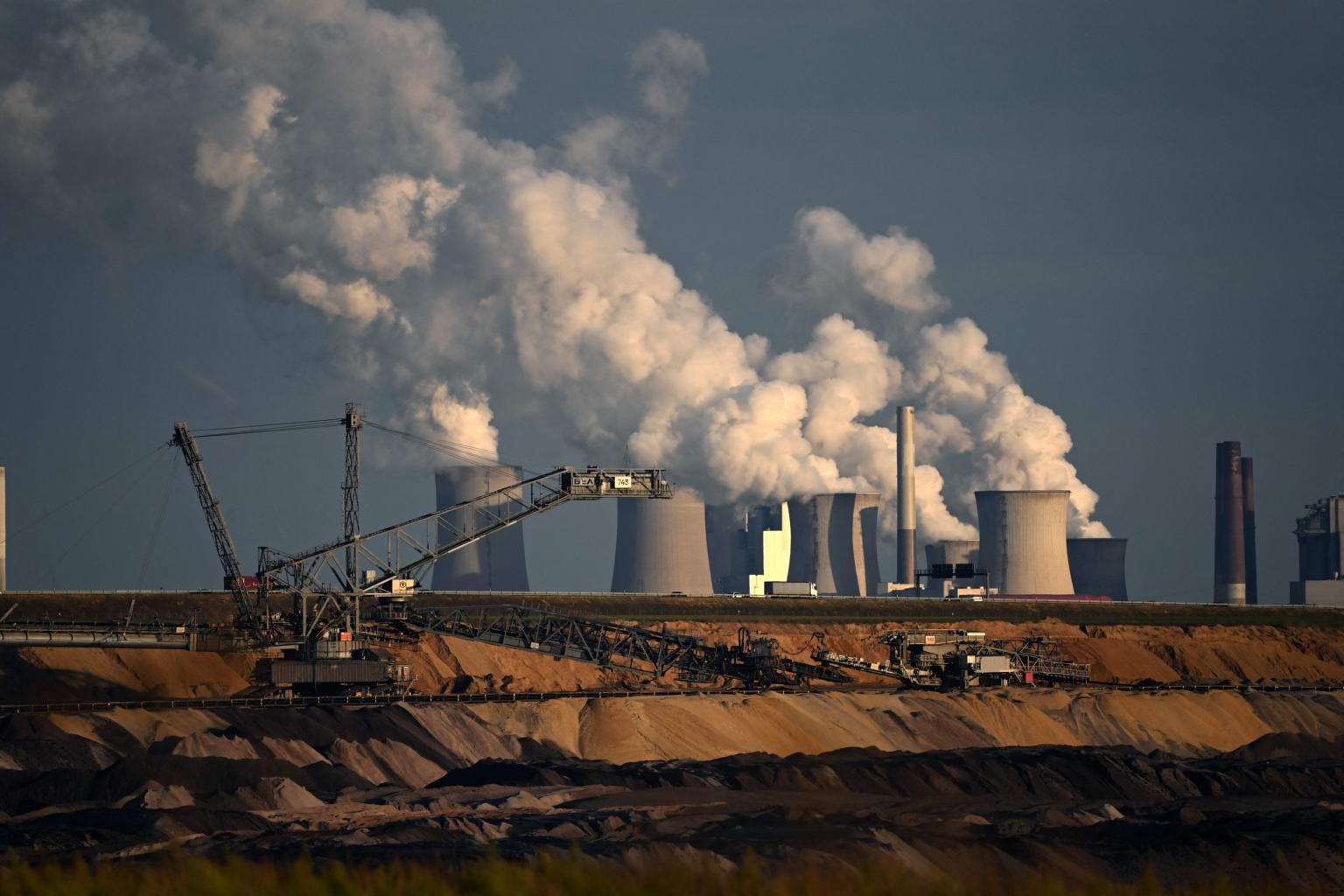Watered-down G-7 climate commitments dismay activists
Sign up now: Get ST's newsletters delivered to your inbox

In a draft communique summary, G-7 leaders said they would commit to a highly decarbonised road sector by 2030.
PHOTO: AFP
GARMISCH-PARTENKIRCHEN, GERMANY (REUTERS) - Climate activists reacted with dismay on Tuesday (June 28) to a decision by Group of Seven (G-7) leaders, prompted partly by the energy crisis resulting from the war in Ukraine, to grant a host of stays and exceptions to climate protection goals they had previously set themselves.
The G-7 industrialised democracies allowed themselves leeway to continue using non-offset fossil fuel investments in “exceptional” circumstances, despite an earlier commitment to end public support for them by end-2022.
They also dropped a commitment to making half of all vehicles zero-emission by 2030, following pressure from Japan, replacing it with a vaguer promise to “significantly” increase their sales, confirming an earlier Reuters report.
President Vladimir Putin’s decision to invade Ukraine has cast a harsh spotlight on Europe’s heavy energy dependence on Russia. With flows of Russian gas dwindling, governments have been looking to alternatives, including allowing coal power stations to run for longer.
“What we see in the climate outcome right now is much less than what is needed,” said Mr Martin Kaiser, head of Greenpeace Germany, suggesting that US and European auto makers had also played a role in watering down commitments on zero-emissions vehicles.
Others went further.
“G-7 leaders have cynically used the war in Ukraine as an excuse to take an enormous step back in tackling the climate crisis during this summit,” said Ms Wiktoria Jedroszkowiak, 20, a Polish activist from the youth-led global climate movement “Fridays for Future”.
The G-7 leaders also announced a “Climate Club” to coordinate actions on tackling climate change and achieving climate neutrality by 2050, but gave few details on what it would do, despite acknowledging that existing efforts did not go far enough.
“We note with concern that currently neither global climate ambition nor implementation are sufficient to achieve the goals of the Paris Agreement by reducing greenhouse gas emissions,” the leaders wrote.
The G-7 groups the United States, Japan, Germany, France, Britain, Italy and Canada.
The G-7 industrialised democracies allowed themselves leeway to continue using non-offset fossil fuel investments in “exceptional” circumstances, despite an earlier commitment to end public support for them by end-2022.
They also dropped a commitment to making half of all vehicles zero-emission by 2030, following pressure from Japan, replacing it with a vaguer promise to “significantly” increase their sales, confirming an earlier Reuters report.
President Vladimir Putin’s decision to invade Ukraine has cast a harsh spotlight on Europe’s heavy energy dependence on Russia. With flows of Russian gas dwindling, governments have been looking to alternatives, including allowing coal power stations to run for longer.
“What we see in the climate outcome right now is much less than what is needed,” said Mr Martin Kaiser, head of Greenpeace Germany, suggesting that US and European auto makers had also played a role in watering down commitments on zero-emissions vehicles.
Others went further.
“G-7 leaders have cynically used the war in Ukraine as an excuse to take an enormous step back in tackling the climate crisis during this summit,” said Ms Wiktoria Jedroszkowiak, 20, a Polish activist from the youth-led global climate movement “Fridays for Future”.
The G-7 leaders also announced a “Climate Club” to coordinate actions on tackling climate change and achieving climate neutrality by 2050, but gave few details on what it would do, despite acknowledging that existing efforts did not go far enough.
“We note with concern that currently neither global climate ambition nor implementation are sufficient to achieve the goals of the Paris Agreement by reducing greenhouse gas emissions,” the leaders wrote.
The G-7 groups the United States, Japan, Germany, France, Britain, Italy and Canada.


